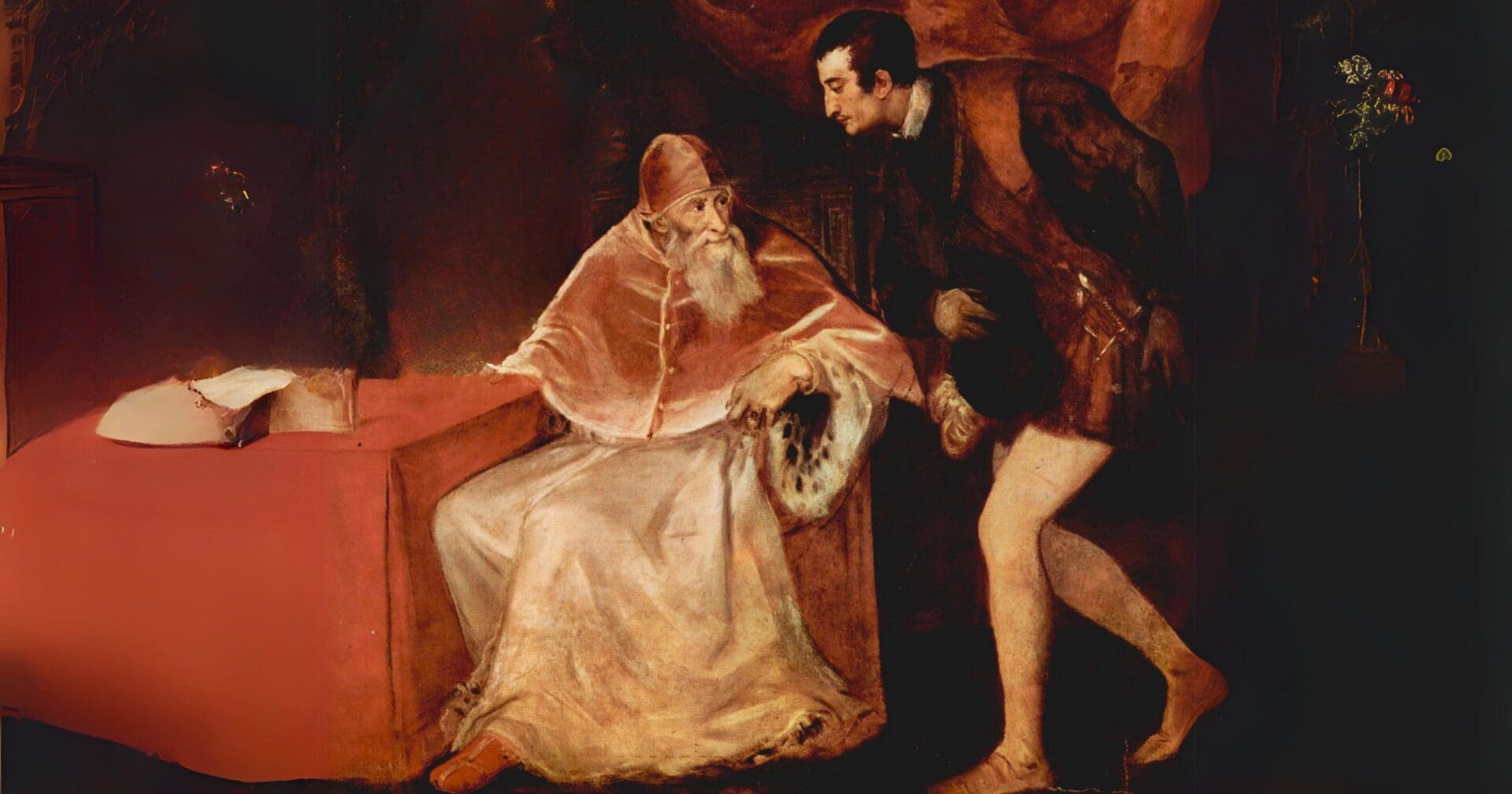Did you know?
The word “nepotism” has its roots in the practices of the medieval Catholic Church, specifically relating to the appointment of “cardinal nephews.”
Derived from the Latin word nepos, meaning nephew, nepotism originally described the favoring of papal family members within the clergy.
During the Middle Ages, popes often appointed their nephews to high-ranking positions, including the cardinalate. This was not familial favoritism, but a strategic move.
In times when “the life of the pope was in jeopardy from conspiracies,” having a trusted confidant close by was an absolute necessity. As such, “he could nowhere more surely find than in his own family.”
As the Catholic Encyclopedia explains:
“In times when the life of the pope was in jeopardy from conspiracies formed in his own court, it was a necessity for the sovereign pontiff to have as his chief assistant one in whom he might repose implicit confidence, and such he could nowhere more surely find than in his own family. The cardinal nephew was called “Secretarius Papae et superintendens status ecclesiasticæ”. The cardinal secretary of State, who fills the place of the nephew, has been, and is, in the present day, the confidential assistant of the pope.”
Popes, bound by vows of celibacy, typically had no legitimate offspring. Thus, nephews became the natural choice for trusted confidants.
This practice continued until 1692, when Pope Innocent XII issued the papal bull Romanum decet Pontificem limiting the power bestowed upon relatives. The bull prohibited popes from “bestowing estates, offices, or revenues on any relative,” allowing only one qualified relative to be made a cardinal.
The historical practice of appointing cardinal nephews also led to the modern understanding of nepotism as favoritism granted to relatives, a term that entered the English language in the 17th century.
Photo credit: Public Domain via Wikimedia Commons
















